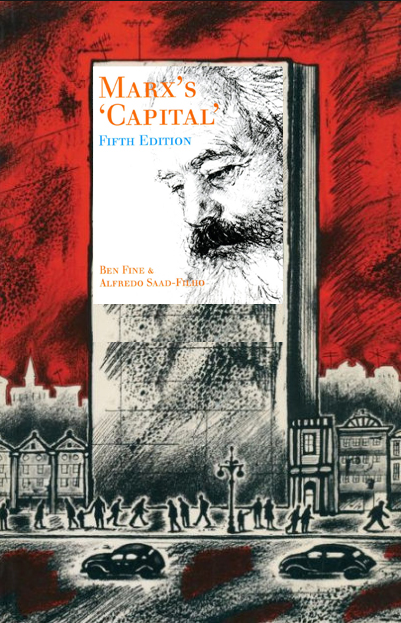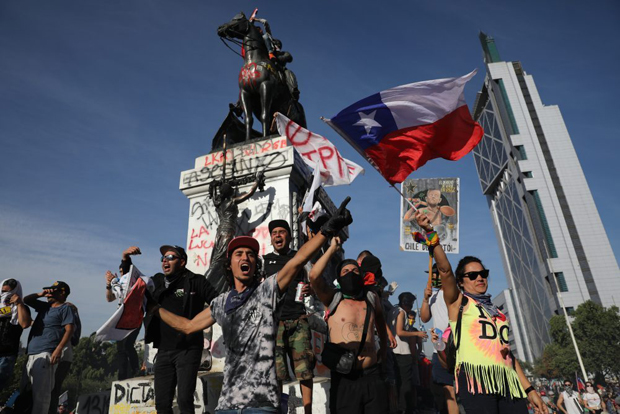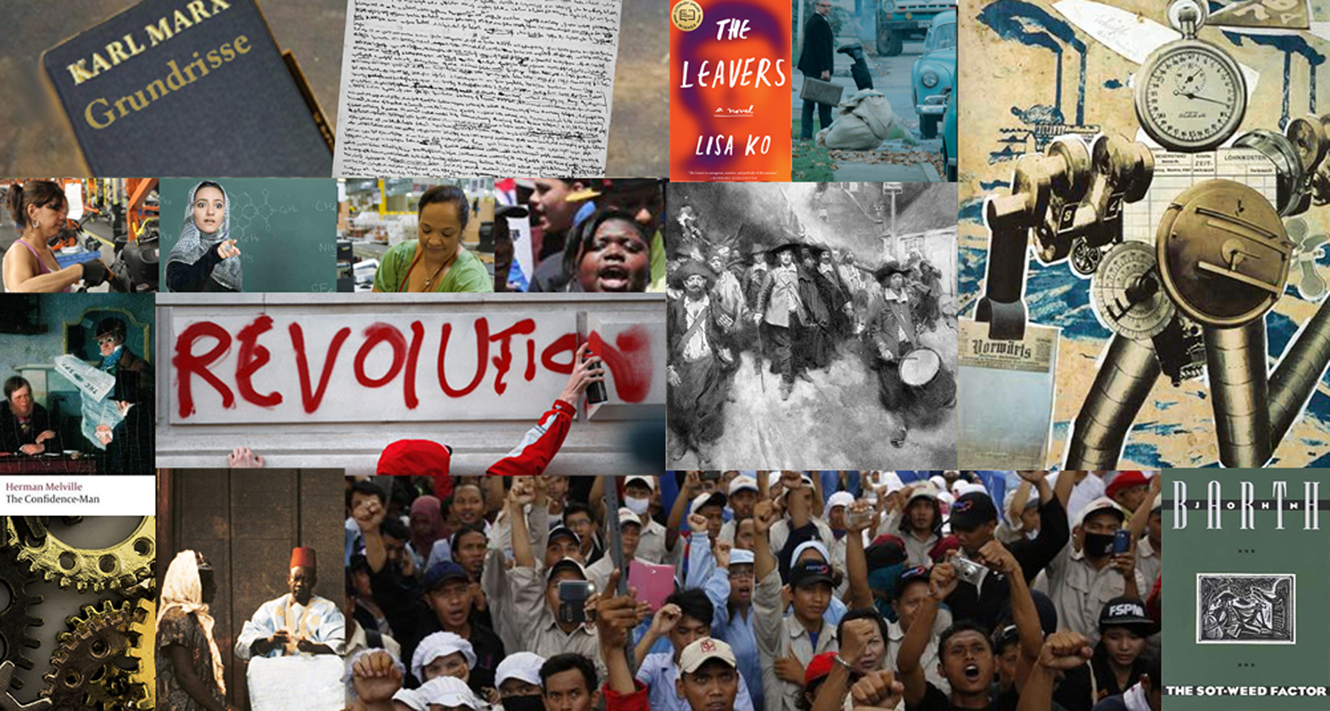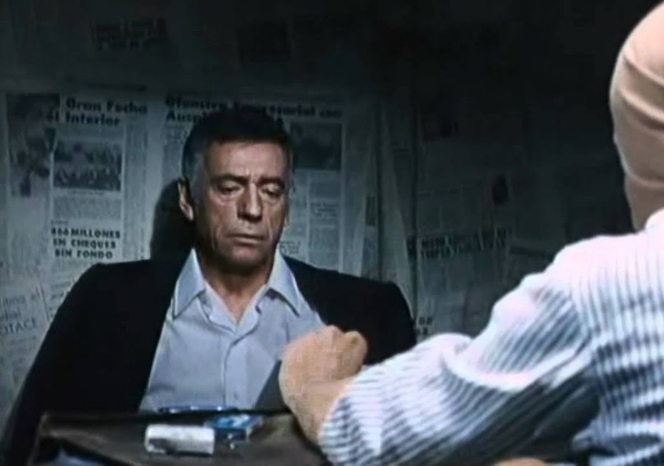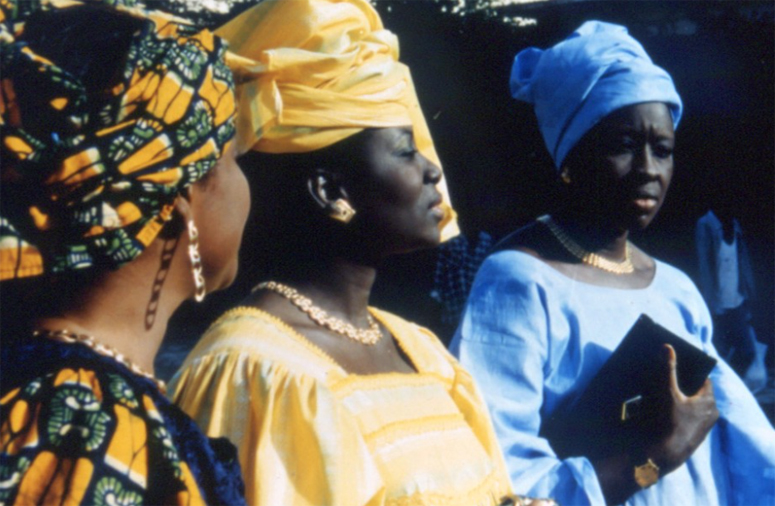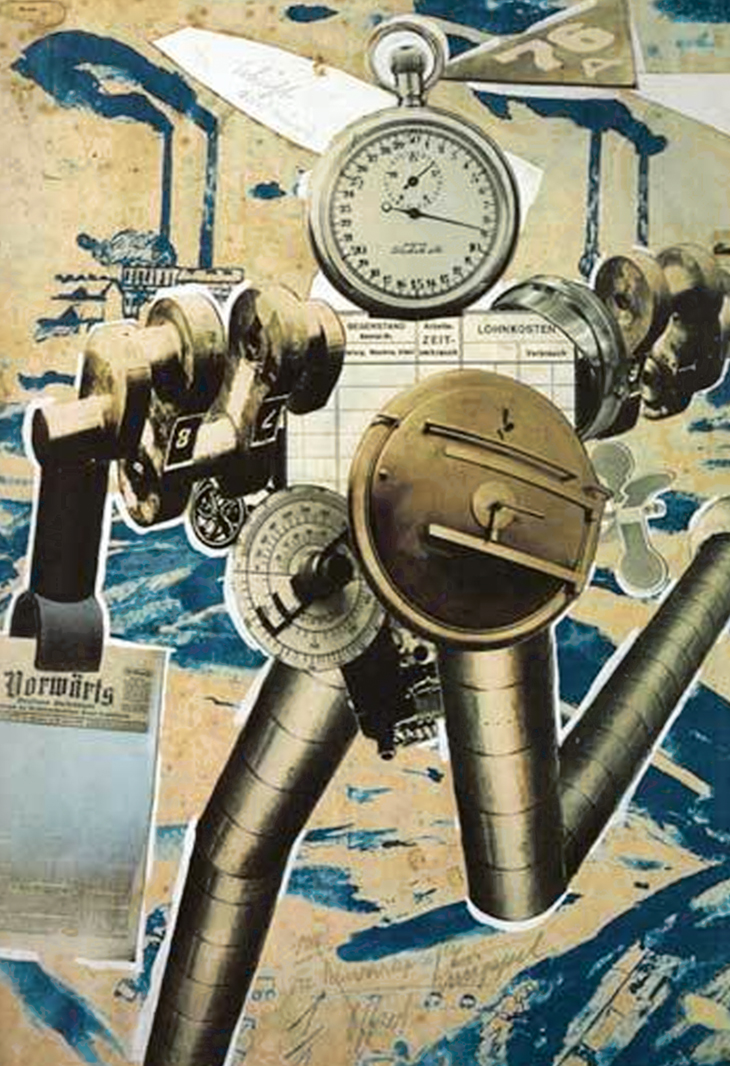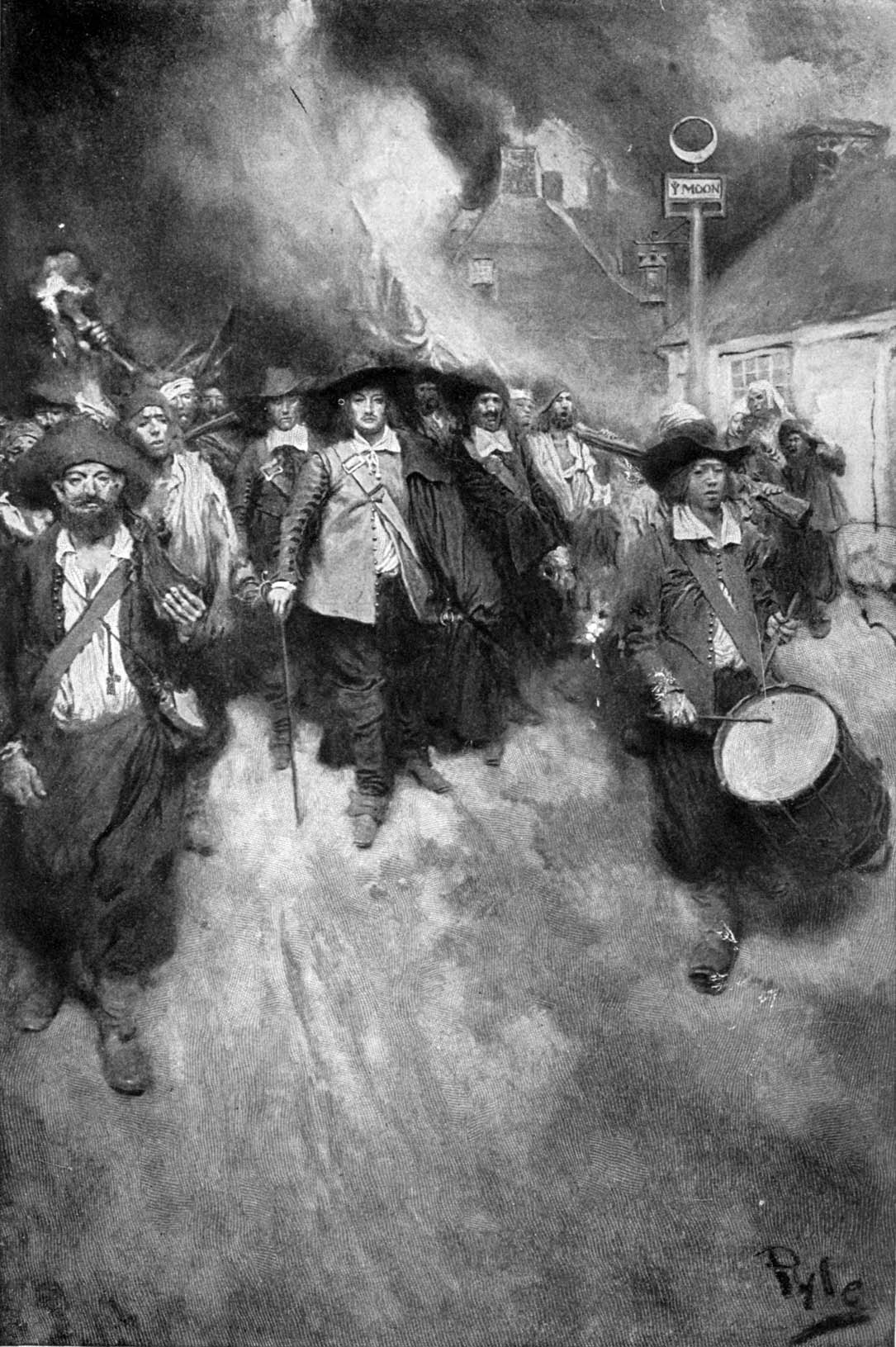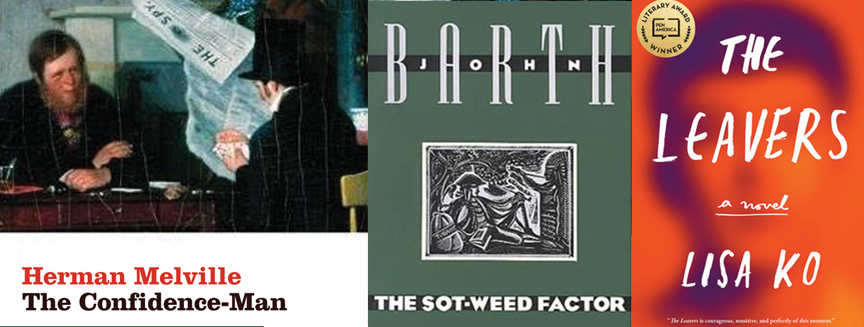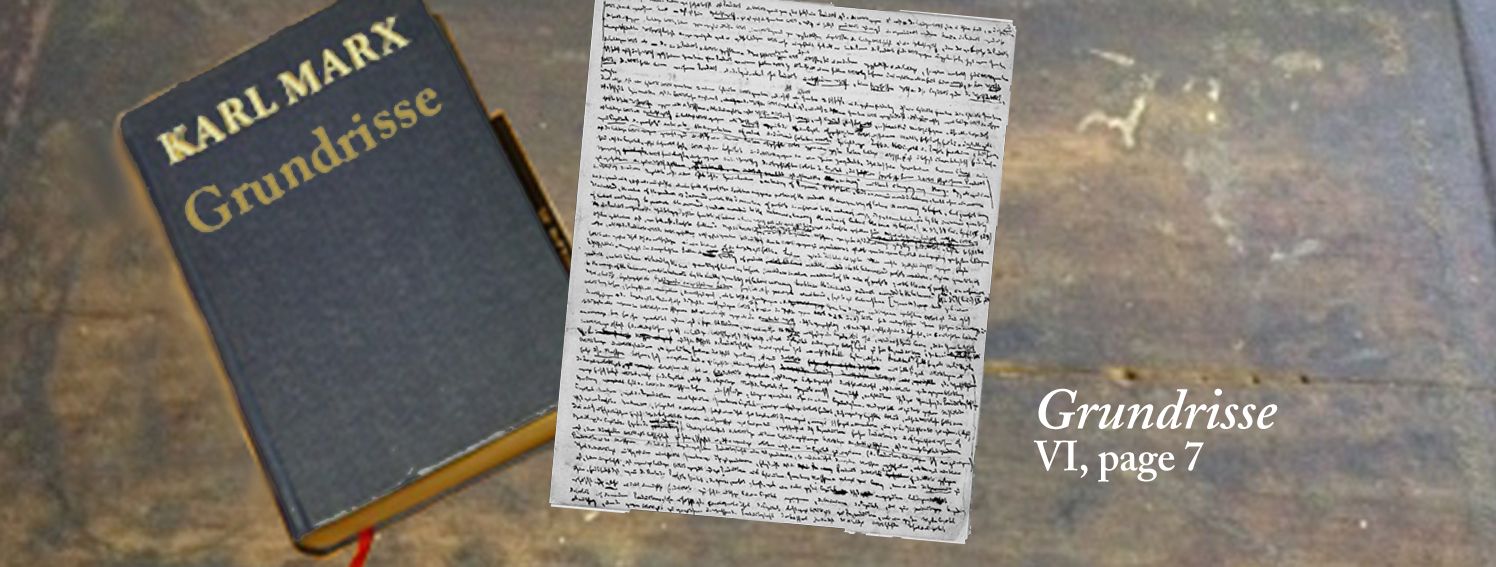Capital: A Review of Volumes 1 and 2
The People's Forum 320 West 37th Street, New York, NY, United StatesIn review of Volumes One and Two of Capital and in preparation for our study of Volume 3 we will have a 4 week intersession reading from Ben Fine and Alfredo Saad-Filho’s Karl Marx’s Capital. These sessions are suggested as a good review for those who would like to join in for the coming sessions of our close reading of Volume 3 which will begin on January 18. Of course, anyone interested in a review of Capital and/or would simply like to read and discuss the Fine and Saad-Filho book are encouraged to attend as well.
Crises and Uprisings in Latin America Today
On-Line via Zoom You will receive Zoom link by email before the event., NYJoin us for a closer look at the political and economic background to dramatic recent events in Latin America, where a tremendous struggle is taking place between popular movements opposed to neoliberalism and authoritarianism, and capitalist elites determined to defend their profits and privileges.
Antiquity Now: 3 Robert Graves Novels
On-Line via Zoom You will receive Zoom link by email before the event., NYTo bring the dead to life
Is no great magic.
Few are wholly dead:
Blow on a dead man’s embers
And a live flame will start.
Let his forgotten griefs be now,
And now his withered hopes;
Subdue your pen to his handwriting
Until it prove as natural
To sign his name as yours…
—To Bring the Dead to Life, Robert Graves
Any 2 Classes (Winter 2020 Discount)
On-Line via Zoom You will receive Zoom link by email before the event., NYBeginning this January through April of 2020 any two classes may be attended for a reduced price. For example, one may attend “Unearthing the Grundrisse” on Monday and “Capital Volume 3” on Saturday for a combined reduced price according to the level of sliding scale you wish to contribute.
Hispaniola in Revolt
New Perspectives Theatre 456-458 West 37th Street, New York, NY, United Stateshe panel will look at the current Haitian political crisis and popular revolt; the Haitian revolution, its emancipatory legacy of liberation and contradictions; the lessons of the 1946 and 1986 revolts in Haiti; race and class in Santo Domingo; the 1965 Dominican revolution as well as prospects for cross-border and international solidarity and revolution on the island and beyond.
Film and Discussion: State of Siege
State of Siege details the overt and covert practices of the Agency for International Development throughout the world, with a particular emphasis on events that took place in Montevideo, Uruguay in 1970.
Mandabi (The Money Order)
The People's Forum 320 West 37th Street, New York, NY, United StatesAn unemployed Senegalese man, Ibrahima Dieng, lives with his two wives and kids in Dakar. His nephew, Abdou, sends him a money order from Paris worth 25,000 francs, which he has saved from working as a street sweeper. Ibrahima is to keep some of the money for himself, save a portion for his nephew, and give a portion to his sister. However, Ibrahima faces numerous difficulties trying to obtain the money order. Not having an ID, Ibrahima must go through several levels of Senegalese bureaucracy trying to get one, then failing after spending money he doesn’t have.
The Orient: Foucault’s Achilles’ Heel
New Perspectives Theatre 456-458 West 37th Street, New York, NY, United StatesThis talk will explore the intellectual sources of Foucault’s anti-humanist approach to non-western cultures as it documents his personal disorientation and struggles in Tunisia, Iran and Japan.
Technology, Science and Capitalism
On-Line via Zoom You will receive Zoom link by email before the event., NYWhat is technology? Does technological change drive social change? Is technology independent of social relations? What are the consequences of “technological progress” under capitalism? What constraints does capitalism place on such progress?
Highlights of Marx’s Capital, Volume 1
While Capital consists of three volumes, a basic familiarity with the key concepts and sections of Volume I offers many tools for understanding the mode of production we live under.
Capital, Volume 3
The People's Forum 320 West 37th Street, New York, NY, United StatesVolume III integrates and completes the analysis of the process of capitalist production as a whole, enabling us to understand and make sense of how each of the appearances and processes we see occurring on the surface of society are related to the whole. When we do so all the laws of motion previously revealed in the first two volumes take on new dimensions. Internal dynamics and contradictions burst out and situate humanity withina historical process that calls us to figure out how to go beyond capital and develop the conditions that insure that the development of each is the precondition for the development of all.
Invention of the White Race
The People's Forum 320 West 37th Street, New York, NY, United StatesThe Invention of the White Race Volumes I & II, Theodore W. Allen's historical materialist analysis of racial slavery, documents how the plantation elite put in place this system of social control following Bacon's Rebellion of 1676. In the final stage of this uprising, an army of European and African chattel bond laborers burned Jamestown to the ground and temporarily drove Governor Berkeley into exile across the Chesapeake Bay.The terrified planter bourgeoisie, in a deliberate response to this display of labor solidarity, enacted a series of laws and practices in the late 17th and early 18th centuries which implanted a system of 'white' racial privileges that enabled the imposition of racial slavery and white male supremacy.
American Writing: Changing Locations
On-Line via Zoom You will receive Zoom link by email before the event., NYSeason 1: Changing Places in America
Herman Melville, The Confidence-Man (1857). John Barth, The Sot-Weed Factor (1960) Lisa Ko, The Leavers (2017)
In his 1970 essay “Philosophy and the Form of Fiction,” William Gass brought the term “metafiction” forward to the reading public as a way to characterize the work writers such as Borges, Barth, Flann O’Brien, as well as the type of novels Gass himself would write. He described metafiction as writing “in which the forms of fiction serve as the material upon which further forms can be imposed”. Does metafiction provide escape for the committed writer from the bourgeois strictures that the novel form imposes? As critical readers we need to check out all the angles. The metafiction form will over time become incorporated as yet another aspect of modern fiction as ultimately there is no way to over-ride what happens when ink is committed to paper, impulses to the interactive screen.
American fiction writers have lots to write about. We are introducing a four term look at writing by American authors who have novels appropriate to four themes important to critical thinkers of the broad American questions on nation, class, race and gender. Much of this fiction becomes part of what our unfolding reality is as a nation, group of nations, as aspiring internationalists. Many of the fictional works we will read are not as formally postmodern or would formally fall in the metafiction category as delineated by Barth.
Unearthing The Grundrisse (continuation)
On-Line via Zoom You will receive Zoom link by email before the event., NYAfter the defeat of the 1848-50 revolutions in Europe, Marx acknowledged that he failed to provide an adequate analysis of the economic foundation of society and turned from a focus on organizing to an intense, life-long study of political economy. Catalyzed by the first global economic crisis in 1857 and after 10 years of concentrated study, he started the first of seven notebooks to self-clarify his work up to that point. Not published or available outside the USSR until 1953, Martin Nicolaus provided the first—and only —English translation of all seven notebooks in 1973 as the Grundrisse: Foundations of the Critique of Political Economy.
Capitalism and Robbery: The Planetary Mine
On-Line via Zoom You will receive Zoom link by email before the event., NYWe will consider how capitalism is rooted in robbery—of the earth, of the water, air, and soil of communities, of the livelihoods of working people. Such theft is becoming more massive in scale and more technologically sophisticated, but is also evoking new forms of popular resistance.

